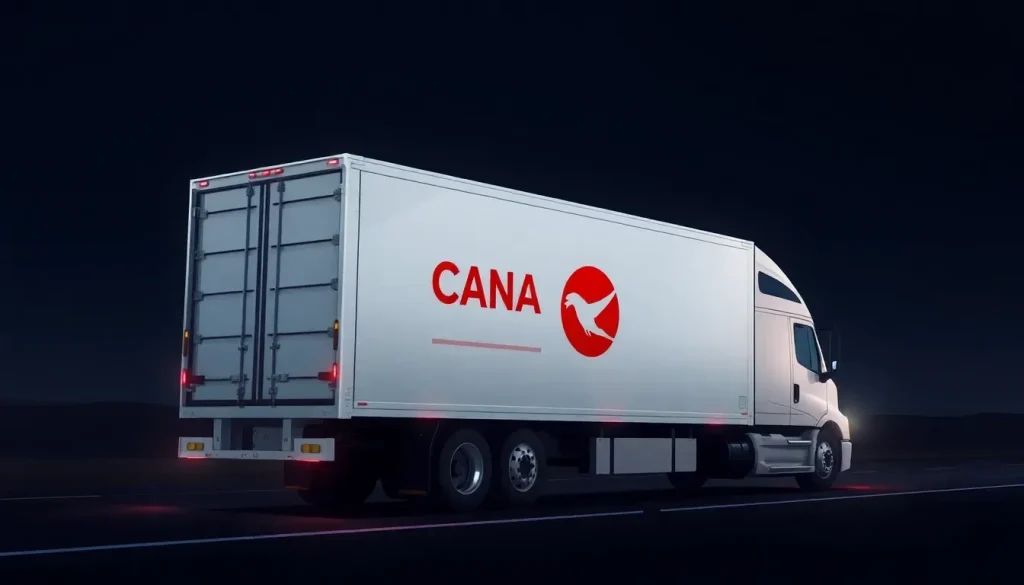CTA opposes Canada Post expansion into freight market

In recent months, the future of Canada Post has become a critical topic of discussion among stakeholders in the transportation and logistics sectors. As the landscape of parcel delivery continues to evolve, the implications of Canada Post's potential expansion into the freight market have raised eyebrows, revealing a complex interplay between public service obligations and commercial competitiveness.
The Canadian Trucking Alliance (CTA) has taken a firm stance against this potential expansion, advocating for a transparent public consultation process. As the CTA president and CEO, Stephen Laskowski, emphasized in a recent news release, “CTA does not support the expansion of public sector entities into the freight market.” This statement encapsulates the broader concerns regarding the implications of a government-backed postal service competing in a space traditionally dominated by private companies.
Concerns Over Canada Post's Expansion Plans
The CTA's call for public consultations stems from a recent announcement by procurement minister Joel Lightbound, indicating measures aimed at stabilizing Canada Post’s finances and facilitating its modernization efforts. This announcement follows a report from the Industrial Inquiry Commission that pointed out significant solvency issues facing Canada Post.
Key issues highlighted in the report include:
- Canada Post's declining market share in parcel delivery compared to private sector competitors.
- Concerns regarding the service’s ability to adapt to the evolving demands of consumers.
- Calls from both union and management for a greater focus on expanding into the parcel delivery market, particularly cross-border shipments.
While Lightbound’s announcement did not explicitly endorse Canada Post’s expansion into the freight market, it did suggest that parcel delivery could be a viable source of growth for the beleaguered service. The CTA argues that this shift could undermine competition and hinder the effectiveness of the private sector in meeting consumer needs.
The Ongoing Nationwide Strike
Amid these discussions, unionized postal workers have initiated a nationwide strike as of September 26, prompted by Canada Post’s announcement to phase out door-to-door mail delivery for nearly all households within the next decade. This move has not only raised concerns among postal workers but also among the general public regarding the future of mail services in Canada.
Lightbound described this decision as part of a broader strategy to reinforce the financial stability of the Crown corporation, which has been struggling with a decline in letter mail volumes and a limited share of the parcel market. The Canadian Union of Postal Workers (CUPW), representing 55,000 members, expressed that they were blindsided by these proposed changes, arguing that such moves could exacerbate the very challenges Canada Post seeks to address.
Although specific details regarding the strike's logistics have yet to be disclosed, reports suggest that various units are organizing picket lines in an “organic” manner. This grassroots approach underscores the growing unrest among postal workers who feel their concerns are not being adequately addressed. In response, Canada Post has announced that no new mail will be accepted during the labor disruption, which could have significant ramifications for services across the country.
Reactions from Business Communities
The Canadian Federation of Independent Business (CFIB) weighed in on the situation, stating that reforming Canada Post is “long overdue.” They urged the government to continue pushing for necessary changes despite the ongoing strike, highlighting the importance of maintaining operational efficiency and competitiveness within the postal service.
This situation has raised several questions among stakeholders, including:
- How will Canada Post address the current decline in letter mail volumes?
- What measures will be taken to ensure that the transition to modernized services does not alienate postal workers?
- Will Canada Post's expansion into the freight market provide a sustainable revenue model or create further market disruption?
The frequency and nature of these public discussions highlight the tensions between public service commitments and the drive for profitability in a rapidly changing market landscape.
Implications for the Future of Canada Post
As the conversation around Canada Post's potential expansion continues, the implications for both the postal service and the freight industry at large remain significant. With the rise of e-commerce and increasing consumer expectations for fast and reliable delivery, Canada Post must navigate its role carefully to remain competitive.
Moreover, the labor disputes and the ongoing strike signal deeper issues within the organization that must be addressed to restore trust among employees and customers alike. The outcome of the current negotiations and the government's response to the CTA's concerns will play a crucial role in shaping the future of Canada Post.
In this context, the potential for partnerships, modernization strategies, and innovative service offerings will be critical for Canada Post to reclaim its position in the market. Stakeholders across the industry will be watching closely as these developments unfold, eager to understand how they might influence the landscape of freight and parcel delivery in Canada.
For a deeper insight into the complexities surrounding Canada Post's future, you can watch this informative video:
As stakeholders from various sectors engage in discussions about the future of postal services, it will be essential to prioritize transparency and open dialogue, ensuring that all voices are heard in this pivotal moment for Canada Post.




Leave a Reply